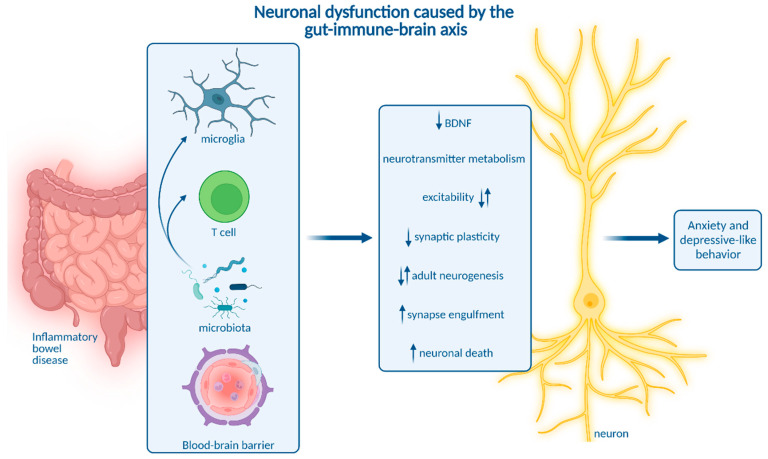Figure 2.
Impaired neuronal functions in inflammatory gut-to-brain communication. Microglia, peripheral immune cells and endothelia contribute to immune-mediated impairment of neuronal functions in IBD by different mechanisms. First, reduced neurotrophic signaling by BDNF is induced by neuroinflammation and observed in IBD. Second, inflammation interferes with neurotransmitter metabolism, e.g., resulting in reduced availability of serotonin. Third, electrophysiological properties of distinct neuronal populations are modified, and synaptic plasticity is reduced. Fourth, adult hippocampal neurogenesis is impaired. Fifth, increased microglial engulfment of synapses may lead to aberrant synaptic degradation. Finally, inflammatory signaling could induce neuronal cell death. Intestinal microbiota essentially contribute to neuronal alterations in IBD, either by augmenting inflammatory activation of immune cells or by direct influence on neurons. Disturbed neuronal function is the pathological correlate of behavioral changes and neuropsychiatric comorbidity in IBD. BDNF: brain derived neurotrophic factor; ↑: increased; ↓: decreased. Figure created with BioRender.com (accessed on 18 August 2022).

